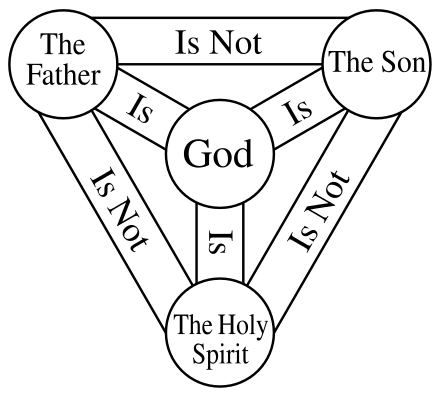Jesus says, that God the Father is a Spirit, yet Paul says there is one Spirit. How do trinitarians understand who or what the Holy Spirit is?
The essential elements on the Holy Spirit may be resumed in the following propositions:
The Holy Spirit is the Third Person of the Blessed Trinity.
Though really distinct, as a Person, from the Father and the Son, He is consubstantial with Them; being God like Them, He possesses with Them one and the same Divine Essence or Nature.
He proceeds, not by way of generation, but by way of spiration, from the Father and the Son together, as from a single principle. - Holy Ghost
Who is the Holy Spirit?
The Third Person of the Blessed Trinity
This heading implies two truths:
- The Holy Ghost is a Person really distinct as such from the Father and the Son;
- He is God and consubstantial with the Father and the Son.
The first statement is directly opposed to Monarchianism and to Socinianism; the second to Subordinationism, to the different forms of Arianism, and to Macedonianism in particular. The same arguments drawn from Scripture and Tradition may be used generally to prove either assertion. We will, therefore, bring forward the proofs of the two truths together, but first call particular attention to some passages that demonstrate more explicitly the distinction of personality. - Holy Ghost
The term Trinity is employed to signify the central doctrine of the Christian religion — the truth that in the unity of the Godhead there are Three Persons, the Father, the Son, and the Holy Spirit, these Three Persons being truly distinct one from another. For non-Trinitarianism to understand the concept of understanding the Trinity they must start with understanding what we mean by spirit, personality and person.
In Theology, the uses of the word are various. In the New Testament, it signifies sometimes the soul of man (generally its highest part, e.g., "the spirit is willing"), sometimes the supernatural action of God in man, sometimes the Holy Ghost ("the Spirit of Truth Whom the world cannot receive"). The use of this term to signify the supernatural life of grace is the explanation of St. Paul's language about the spiritual and the carnal man and his enumeration of the three elements, spirit, soul, and body, which gave occasion to the error of the Trichotomists (1 Thessalonians 5:23, Ephesians 4:23).
Matter has generally been conceived as in one sense or another the limitation of spirit. Hence, finite spirits were thought to require a body as a principle of individuation and limitation; only God, the Infinite Spirit, was free from all admixture of matter. Thus, when we find the angels described as asomatoi or auloi, in the writings of the Fathers, this properly means only that the angels do not possess a gross, fleshly body; it does not at all imply a nature absolutely immaterial. Such Scripture expressions as "bread of angels", "they shall shine as the angels", as well as the apparitions of these heavenly beings, were adduced as proofs of their corporeality. So speak Sts. Ambrose, Chrysostom, Jerome, Hilary, Origen and many other Fathers. Even in Scholastic times, the degree of immateriality that belongs to finite spirits was disputed. St. Thomas teaches the complete simplicity of all spiritual natures, but the Scotists, by means of their famous materia primo prima, introduced a real composition, which they conceived to be necessary to a created nature. As regards the functions of spirits in the world, and their active relations to the visible order of things, Scripture abounds in instances of their dealings with men, chiefly in the character of intermediaries between God and His servants. They are the heralds who announce his commands, and often too the ministers who execute His justice. They take a benevolent interest in the spiritual good of men (Luke 15:10).

A compact diagram of the Trinity, known as the "Shield of Trinity". The Shield is not generally intended to be a schematic diagram of the structure of God, but it presents a series of statements about the correlation between the persons of the Trinity. - Trinity (Wikipedia)
The Roman Catechism teaches that the Holy Spirit "proceeds from the divine will inflamed, as it were, with love" (I,9.7). The biblical name of the third Person, "Holy Spirit" (pneuma = wind, breath, principle of life), designates a principle of activity. An act of will is an inclination to some known good.
Theologians have given a name to that type of proceeding, calling it "spiration," from the noun "spirit" which, of course, means "breath." We have a good indication of this in St. John's Gospel in Ch. 20:20-23. After his resurrection when Jesus appeared to his Apostles, St. John says "he breathed on them" (v. 22) and then gave them the power to forgive and to retain sins.
The term "spiration" designates the loving activity between the Father and the Son which results in the term of their love, namely, the Holy Spirit. So they say that the Holy Spirit proceeds from the Father and the Son through spiration. This doctrine was taught clearly by the Second Council of Lyons in 1274. - The One and Triune God

